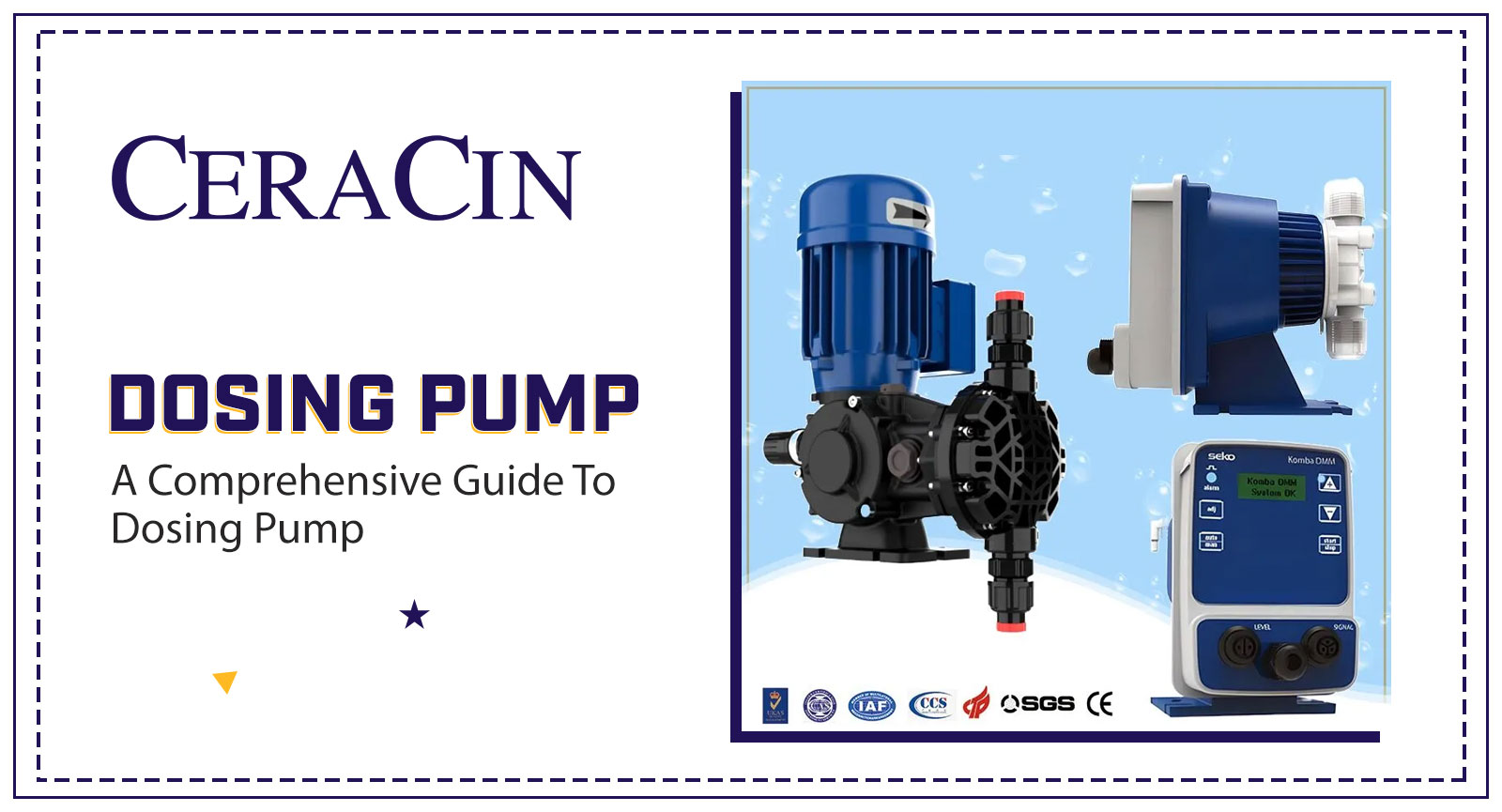
A Comprehensive Guide To Dosing Pump
Dosing pumps are quite popular in various industries, for precise chemical dosing and fluid control applications. Dosing Pumps ensure accurate delivery of chemicals, additives, and other substances from water treatment plants to industrial processes. The knowledge of the types, applications, and best practices associated with these pumps is essential for maximizing their efficiency and effectiveness.
Different Types of Dosing Pumps
Diaphragm Pumps
Diaphragm pumps are one of the most common types of dosing pumps. They utilize a flexible diaphragm to displace the fluid, providing accurate and consistent dosing. Diaphragm pumps are suitable for handling a wide range of chemicals and are known for their reliability and durability.
Peristaltic Pumps
Peristaltic pumps operate by squeezing a flexible tube to move the fluid through a series of rollers. These pumps are ideal for applications requiring gentle pumping action and precise dosing, making them popular in the pharmaceutical, food, and beverage industries.
Piston Pumps
Piston pumps use a reciprocating piston to displace the fluid, offering precise control over the dosing volume. They are often used in high-pressure applications and environments where accurate dosing is critical.
Progressive Cavity Pumps
Progressive cavity pumps consist of a helical rotor and a stator, creating a continuous seal along the pumping chamber. These pumps are suitable for handling viscous fluids and are commonly used in chemical processing and wastewater treatment plants.
Applications of Dosing Pumps
Water Treatment: These pumps play a vital role in water treatment processes by accurately injecting chemicals such as chlorine, fluoride, and coagulants to disinfect and purify water. They ensure that the correct dosage of chemicals is added to maintain water quality standards.
Industrial Processes: In industrial settings, such types of pumps are used for precise chemical dosing in various processes such as pH adjustment, corrosion inhibition, and chemical reactions. They help optimize process efficiency and product quality while minimizing waste and environmental impact.
Agriculture: These pumps are used in irrigation systems, fertilizing, and pesticide applications. They enable farmers to control the dosage of nutrients and chemicals, ensuring optimal crop growth and yield while minimizing resource usage.
Pharmaceuticals: Accurate dosing of additives and active components is necessary during the pharmaceutical production process. Dosing pumps, especially peristaltic pumps, are used for accurate dispensing in formulations, blending, and packaging processes, ensuring product consistency and compliance with regulatory standards.
The Best Practices for Dosing Pump Usage
Regular Maintenance: Proper maintenance is essential to ensure these pumps operate efficiently and reliably. This includes routine inspection, cleaning, and replacement of worn components to prevent downtime and maintain accuracy.
Calibration: Regular calibration of pumps is necessary to verify dosing accuracy and ensure consistent performance. Calibration procedures should be conducted according to manufacturer guidelines and industry standards.
Chemical Compatibility: It’s crucial to select dosing pumps that are compatible with the chemicals being used to avoid corrosion or degradation of pump components. Compatibility charts provided by manufacturers should be consulted when choosing pump materials.
Safety Precautions: When handling chemicals and operating these pumps, proper safety precautions as mentioned by Dosing Pump Manufacturers, should be followed to protect personnel and equipment. This includes using appropriate personal protective equipment (PPE) and implementing containment measures for hazardous substances.
Summing Up
Dosing pumps are versatile tools with widespread applications across various industries. Understanding the different types of dosing pumps, their applications, and best practices for usage is essential for maximizing efficiency, accuracy, and safety in chemical dosing and fluid control processes. You can ensure optimal performance and reliability of your dosing pump systems, by following the above-mentioned guidelines.

Ceracin
Ceracin has expertise in industrial pump manufacturing since 2016. We are committed to provide our nation with the highest quality pumps at competitive prices.
